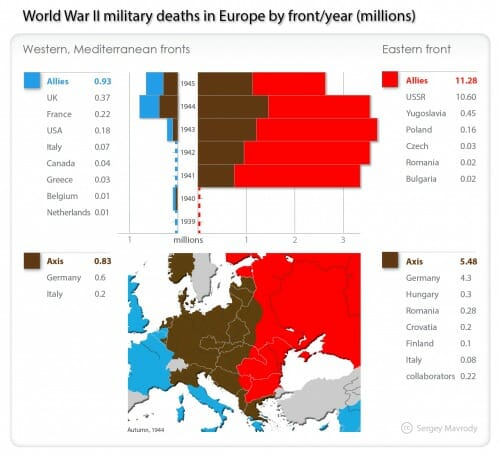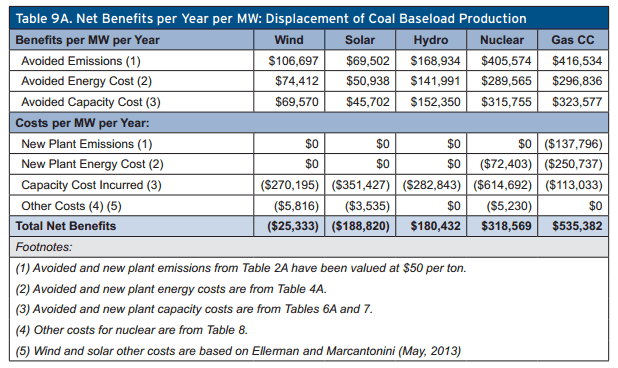In an article about the French railroad SNCF, Randal O'Toole makes a point I have screamed to the world for years:
Meanwhile, French trains carry less than 11 percent of freight, as more than 86 percent of freight is transported on highways. Those numbers are in sharp contrast to the U.S., where at least a third of freight goes by rail and less than 40 percent goes by truck (and I suspect a bad model has erroneously exaggerated the role of trucks).
American railroads are a model of capitalism, one of the least-subsidized forms of transportation in the world. They are profitable and do far more for the national economy than Europe’s socialized railroads, which mainly serve narrow elites.
Most of the intellectual elites and nearly all the global warming alarmists deride the US for not having the supposedly superior rail system that France and Germany have. They are blinded by the vision of admittedly beautiful high speed trains, and have frittered away billions of dollars trying to pursue various high speed rail visions in the US.
I know that the supposedly pro-science global warming alarmists sometimes are not actually very focused on science, but this is pretty simple to think about.
First, consider the last time you were on a passenger train. Add up the weight of all the folks in your car. Do you think they weighed more or less than the car itself? Unless you were packed into a subway train with Japanese sumo wrestlers, the answer is that the weight of the car dwarfs that of the passengers it is carrying. The average Amtrak passenger car apparently weighs about 65 tons (my guess is a high speed rail car weighs more). The capacity of a coach is 70-80 passengers, which at an average adult weight of 140 pounds yields a maximum passenger weight per car of 5.6 tons. This means that just 8% of the fuel in a passenger train is being used to move people -- the rest goes into moving the train itself.
Now consider a freight train. The typical car weight 25-30 tons empty and can carry between 70 and 120 tons of cargo. This means that 70-80% of the fuel in a freight train is being used to move the cargo.
Now you have to take me on faith on one statement -- it is really hard, in fact close to impossible, to optimize a rail system for both passengers and freight. In the extreme of high speed rail, passenger trains required separate dedicated tracks. Most rail systems, even when they serve both sorts of traffic, generally prioritize one or the other. So, if you wanted to save energy and had to pick, which would you choose -- focusing on freight or focusing on passengers? Oh and by the way, if you want to make it more personal, throw in a consideration of which you would rather have next to you on crowded roads, another car or another freight truck?
This is why the supposedly-green folks' denigrating of US rail is so crazy to me. The US rails system makes at least as much sense as the European system, even before you consider that it was mostly privately funded and runs without the subsidies that are necessary to keep European rail running. Yes, as an American tourist travelling in Europe, the European rails system is great. Agreed. I use it every time I go there. I have to assume that this elite tourist experience must be part of why folks ignore the basic science here.
My original article on all this years ago was in Forbes here.
Postscript #1: One could argue that what matters is not the weight ratios of freight vs. passenger rail but how those compare to the road alternatives. I would have to think this through, but it gets way more complicated because you have to start worrying about average occupancy and such since that also differs. At full capacity say of 4 people, the typical 4000 pound car (US, rest of the world is less) would passenger weight around 12% of the total, higher than for the passenger train. But average occupies could change the comparison and I don't have the time to work it through. But for a full analysis we would have to take a lot of other things into account. For example, trains are a poor fit with customer travel time preferences for longer US distances, even for higher speed options. In the same way freight pencils out worse for rail in Europe because the last mile transport problems become a bigger percentage in a shorter haul. I am confident though that for the US, the freight-dominant system is the right solution and it amazes me how hard it is to get anyone to recognize this.
Postscript #2: Thinking about the SNCF, I actually did a consulting project there 20+ years ago. I remember two things. First they had 25% more freight car repair people than they had freight cars. Which led me to making the tongue-in-cheek suggestion that they could give every one of these folks their own tool bag, assign them their own car to ride around on, and still cut a fifth of their staff. I have never, ever, ever seen bloated staffing like I did at SNCF. My other memory was lunches with executives that took place in palatial dining rooms with waiters in white gloves. We ate for like 3 hours and drank a case of wine and all I could think about doing after lunch was going to take a nap.
Postscript #3: This is really going to be a random aside, but if you want to bring science to the table, monorails are the dumbest things ever. The whole advantage of rail is the friction reduction of a metal flanged wheel rolling on a metal rail. Most monorails (and people movers) are just tires on a concrete beam (e.g this is how the Disney monorails work). This is no more efficient than a bus and actually less because the train jacks up the vehicle to passenger weight ratio over a bus. Because of certain geometry issues, monorails also have limited capacity. Disney has been struggling with this for years at the Magic Kingdom in Florida and their ferry boats seem to move a lot more passengers than the adjacent monorails. Monorails do look awesome, though, and their tracks are airier and more attractive than traditional elevated rail tracks.





